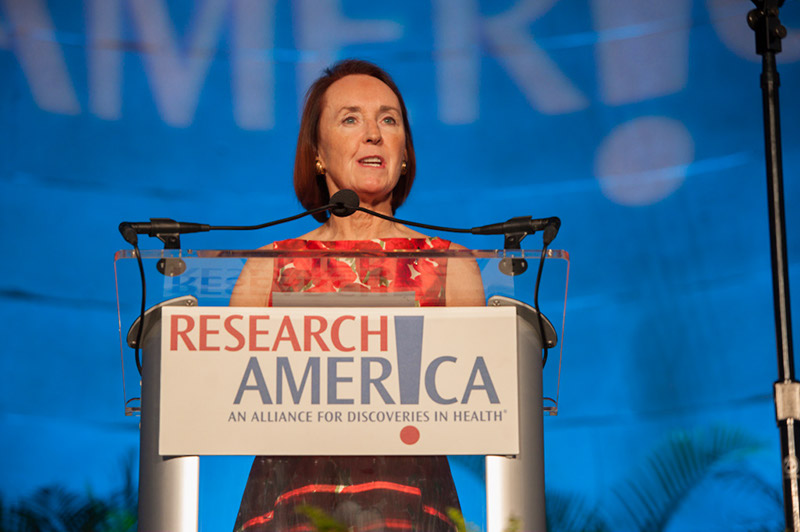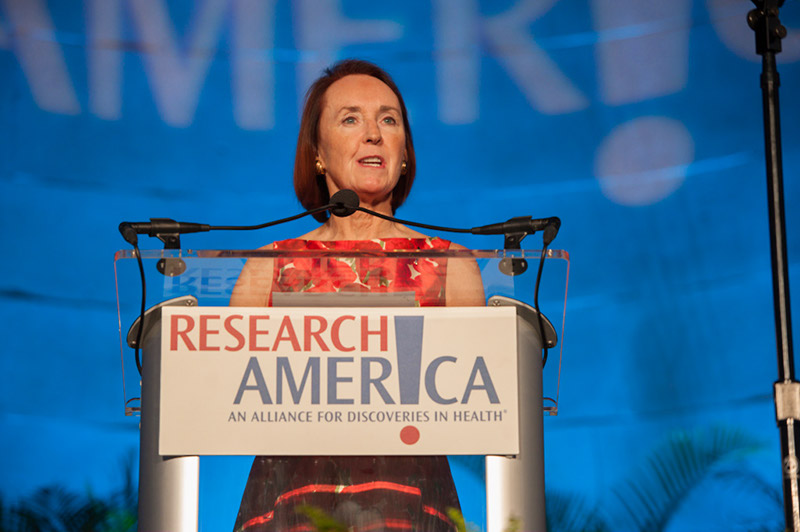Science Budgets in Jeopardy


Dear Research Advocate:
It is disappointing but not, sad to say, surprising that the FY20 budget process is starting off on shaky ground. Several reports this week reinforce what the president has previously asserted: his budget proposal will feature a 5% cut in non-defense spending. That’s likely not the worst of it. If that across-the board cut sits on top of the $55 billion overall reduction in non-defense discretionary spending required by the return of “sequestration” (shorthand for austerity level budget caps), the president may be proposing cuts of 15% or more to some, if not most, federal science agencies.
(It is important to emphasize that the president’s budget amounts to a suggestion, not a dictate, since the Constitution gives the Congress the power of the purse. Still, it does have impact, typically influencing to some extent the allocation of appropriated dollars.)
Back to the $55 billion cut required by the sequestration budget caps. That’s not a suggestion; it’s a fact. If we do not convince Congress to raise the budget caps, science funding will take a major hit. I’m sounding an alarm here. Please don’t wait to become a partner in our Raise the Caps advertising and social media campaign. Email Donna at [email protected] now.
Now is also the time to ask your representatives in Congress to include federal research agencies among their appropriations priorities. Most members ask that you fill out an online form. Check this site to connect with your representative and this site to connect with your senators. In case they are useful, here are Research!America’s appropriations “asks.” To help make the case, here is new survey data showing a meaningful increase in those who say we should be spending more on research for health.
The House Science Committee is holding a March 6 hearing entitled “Maintaining U.S. Leadership in Science and Technology.” Our nation’s legacy in these arenas is vast. But what will future generations say about the era we are entering now? As other nations ramp up their R&D investment, the U.S. commitment is faltering. Share this infographic to make the case for turning the ship around.
The day after the hearing, the Information Technology and Innovation Foundation (ITIF) is hosting a Hill briefing on the “Bayh-Dole Act,” a law that simply does not get the credit it deserves as the crucial infrastructure supporting U.S. technology transfer. The misuse of the law’s “march-in” provisions threatens to compromise the positive impact of Bayh-Dole. I hope you’ll help spread the word on this relevant and timely briefing.
During our alliance member call today, guest speaker American Public Health Association (APHA) President and Research!America Board Member, Dr. Georges Benjamin, addressed the need to confront a host of major public health threats. Whether the goal is significantly reducing the transmission of HIV, preventing outbreaks of diseases like measles that have long been declared eliminated, or countering the alarming increase in teen nicotine addiction, our nation requires a robust investment in public health research and infrastructure.
Today is Rare Disease Day. Did you know that 1 in 10 Americans is living with a rare disease, and half of those are children? Earlier this week we partnered with Children’s National Hospital, Horizon Pharmaceuticals, and the EveryLife Foundation for a candid panel discussion on progress and need in rare disease research. There was also a tremendously affecting segment — a song capturing the experience of an amazing 9-year old advocate named Ja’cori, who has a rare immune system disorder called chronic granulomatous disease (CGD). If you need inspiration to reinforce your advocacy efforts, watch this video and listen to Ja’cori’s song.
Whether addressing public health threats or rare diseases, it is clear that scientific research requires sustained commitment of resources, new ideas, and diverse perspectives. Unfortunately, women remain underrepresented across STEMM fields and at every educational and career stage. Reversing negative trends and ensuring women are fairly represented in STEMM will be the topic of a National Academies of Science, Engineering, and Medicine (NASEM) symposium to be held March 11. Learn more here.
There is still time to register (but limited space remaining) for our 2019 Annual Meeting and Advocacy Awards Dinner on March 13. Register now!
Sincerely,
Mary Woolley




